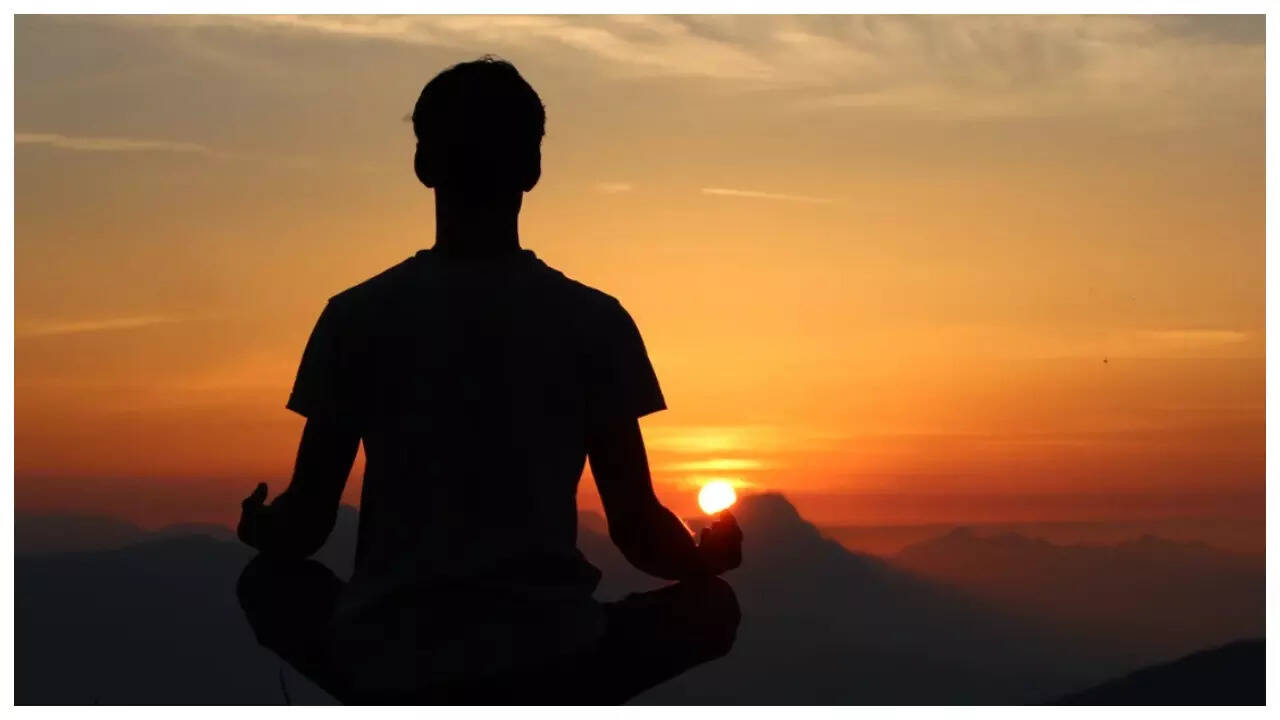Watching videos can be as effective as meditation? Here’s how to do it right to reduce stress |

One common piece of advice people often hear when discussing stress is to try meditation or other mindfulness practices. But what if there’s a more effortless, and even enjoyable, way to relax? Yes, scientists have at last found a novel way to destress. All you need is a couple of minutes and a smartphone. Contrary to popular belief, your phone or digital device can actually help alleviate stress, and it may be as effective as meditation. A new study led by researchers at the University of California, Santa Barbara has found that watching certain videos can be as effective as meditation at reducing stress. The findings of the study are published in the journal Psychology of Popular Media.
Stress – the new epidemic

Though most people don’t realize it, stress has quietly grown into a modern epidemic. In fact, according to the researchers, stress has arguably reached epidemic levels in the United States. Americans say they’re feeling more anxious than in previous years, according to the APA’s Stress in America survey. The majority of people aged 18-44 say they feel moderate to extreme stress daily. The new study found that brief exposure to inspiring videos can spark hope and reduce stress.“Though there are many effective ways to deal with stress, people often feel too busy or overwhelmed to enact these strategies. What we found is that even a few minutes of watching content that makes people feel hopeful can put a dent in that stress. It’s a short, simple, and even enjoyable break—and it can make a meaningful difference in helping people feel more optimistic and able to handle what’s in front of them,” lead author Robin Nabi, PhD, of the University of California, Santa Barbara, said in a release.Nabi pointed out that though health experts often recommend activities like meditation, exercise, deep breathing, participating in hobbies, or spending time with other people to manage stress, media as a tool is rarely discussed. “So many of us are told that when we’re stressed, we should avoid the media. And, in fact, we as a society tend to look at media use through a very negative lens. But media use is one of the most common ways that people try to cope with stress, and it has the capacity to provide benefits, particularly when it comes to relaxation,” she said.
The study
To understand the impact of short videos on stress, the researchers conducted a four-week online experiment with more than 1,000 US adults. The experiment was conducted between Thanksgiving and Christmas, a period often marked by high stressThe participants completed a questionnaire at the beginning of the study, marking their initial stress levels. They were assigned to one of the five groups. Each day for the next five days, some participants received an email instructing them to view an inspirational video, while others were asked to watch a comedy segment. Another group was instructed to follow a guided meditation, and a fourth group was instructed to scroll through their phone. Each of these activities lasted about 5 minutes per day. As a control, an additional group of participants was given no media use instructions at all.After each media experience (or lack thereof), the participants answered how they were feeling emotionally in the moment. The participants were followed the next week and again the week after that to see how their emotions in response to their media experiences influenced their stress levels.
Findings

The results of the study were striking. The researchers found that people who either watched the inspirational videos or followed the guided meditations reported feeling significantly more hopeful compared with the control group. The hope predicted lower stress levels not only a few days later but also up to 10 days after the intervention had ended. Though comedy videos and random scrolling helped people laugh and kept them engaged, they did not have any impact on people’s later stress.According to Nabi, the key to stress reduction was feeling hope. “Hope isn’t just uplifting in the moment. It can also motivate people to deal with the challenges in their lives.When people see others overcoming adversity, as they did in our inspiring videos, it can spark the belief that they, too, can persevere, survive and thrive. That sense of possibility helps counteract stress and can have enduring benefits beyond the simple moment of viewing.“
The study highlights how strategically curated media, especially content that evokes hope, could be a practical, accessible tool for supporting stress relief, especially during high-stress periods like the holiday season. “If we actively choose to incorporate a little more inspiring content in our lives – to feel a little more hope – it can possibly help us reduce stress. This is not to say that this sort of media consumption should replace meditation or other well-supported strategies to deal with stress. But rather, this is one more tool we can add to our toolbox to handle the stress that so many of us feel,” Nabi added. Note: The information provided in this article is for educational purposes only and is not intended as medical advice. Always consult with a healthcare professional before starting any new medication or treatment.





